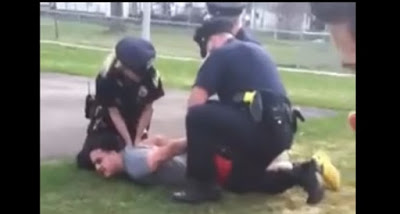The tragic and indefensible killing of Minneapolis resident George Floyd at the hands of city police officers created understandable emotions of pain and anger in the country.
We have all witnessed the resulting peaceful protesting of police brutality against citizens. But in many cases protests turned into violent, dangerous rioting, and now rising anti-slavery emotion has spawned tearing down statues associated with that dark period in American history, and condemnation of other things reminiscent of that period.
While these efforts have strong support, other people see them as wrong; as trying to whitewash history, instead of leaving these statues and other things to remind us of the evils of slavery, now gone from America for more than 150 years.
If slavery was a mistake of our nation — and it was — so is trying to erase every last vestige of it. We learn from our mistakes, so that we don’t make them again. But if there is nothing to remind us of our errors, at some point in the future we may again travel down those paths.
Through the years people have made important, illuminating comments about such situations.
One of the most relevant is this one: “Every record has been destroyed or falsified, every book rewritten, every picture has been repainted, every statue and street building has been renamed, every date has been altered. And the process is continuing day by day and minute by minute. History has stopped. Nothing exists except an endless present in which the Party is always right.” — George Orwell, 1984
Two more are from a current source, the brilliant Thomas Sowell: “Civil rights used to be about treating everyone the same. But today some people are so used to special treatment that equal treatment is considered to be discrimination.”
And: “Emotions neither prove nor disprove facts. There was a time when any rational adult understood this. But years of dumbed-down education and emphasis on how people ‘feel’ have left too many people unable to see through this media gimmick.”
HUD Secretary Ben Carson said on ABC’s “This Week with George Stephanopoulos” recently, “We’ve reached a point in our society where we dissect everything and try to ascribe some nefarious notion to it,” he said. “We really need to move away from that. We need to move away from being offended by everything, of going through history and looking at everything, of renaming everything. I mean, think about the fact that some of our universities, some of our prestigious universities, have a relationship with the slave trade. Should we go and rename those universities?
“It really gets to a point of being ridiculous after a while,” Carson said. “And, you know, we’re going to have to grow up as a society.”
And then there is this: “The modern Left: they cancel ‘Gone with the Wind’ ... and then burn Atlanta.” — U.S. Senator Ted Cruz, R-TX.
Other targets include brand names that have been part of American life for decades, without hurting anyone: Eskimo Pie, Aunt Jemima’s pancake mix and syrup, Uncle Ben’s rice, Mrs. Butterworth’s syrup, and Cream of Wheat breakfast mix. These brands are considering changing their names and/or appearance due to pressure from the change culture.
Speaker of the House of Representatives, Nancy Pelosi, D-CA, recently ordered the removal of four portraits of former Speakers. “As I have said before, the halls of Congress are the very heart of our democracy,” she wrote in a letter requesting the removal of the portraits, “there is no room in the hallowed halls of Congress or in any place of honor for memorializing men who embody the violent bigotry and grotesque racism of the Confederacy.”
The portraits are of Robert M.T. Hunter of Virginia, Howell Cobb of Georgia, James L. Orr of South Carolina and Charles F. Crisp of Georgia. Crisp served in the Confederate Army, but entered politics after the Civil War in the 1870s. The other three were in Congress before the War, and then held high civilian office in the Confederacy.
Pelosi has been in Congress for a lifetime, and is Speaker of the House for the second time. Why did the presence of these four previous Speakers’ portraits not drive her crazy before now?
But let’s not ignore the other side of this coin. The advocates of whitewashing unpopular items from our history sometimes goof.
Along with the statues of Confederate luminaries, the cleansers of history also wanted to remove the statue of Ulysses S. Grant. Grant was in fact the leader of the Union Army that defeated the Confederates, and became the President of the United States after the War from 1869 to 1877. Yet, the cancel culture wants his statue destroyed.
And then there are objects that fit the definition of things that they want removed, but maybe after thinking about it, they might change their minds.
A Facebook tweet reads: “Yale University was named for Elihu Yale. Not just a man who had slaves. An actual slave trader. I call on @Yale to change its name immediately and strip the name of Yale from every building, piece of paper, and merchandise …”
The idea of whitewashing history is not a good thing.





